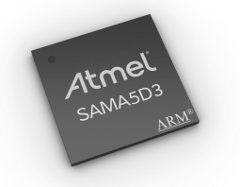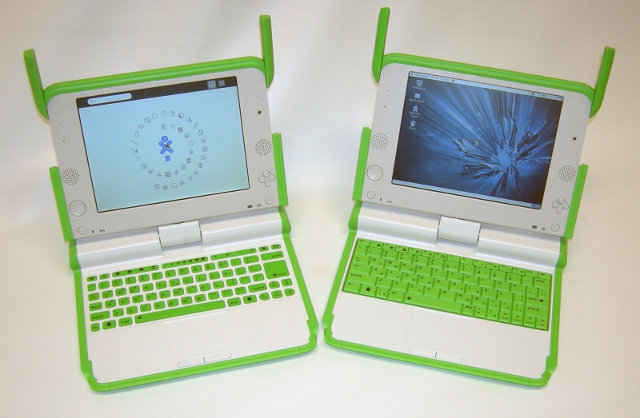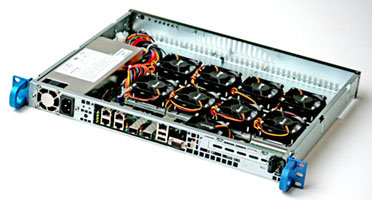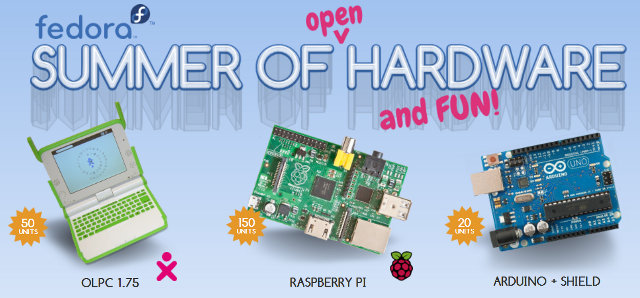John Chiappetta, working for Seneca Centre for Development of Open Technology, has recently announced the release of Raspberry Pi Fedora Remix 18, which will be now known as Pidora 18. If you were there at the time of Raspberry Pi Fedora Remix 14 release, the first ever Linux distribution released for the Raspberry Pi, you may remember it had many issues, and the Raspberry Pi foundation decided to remove it from their Download page. This fourth release will hopefully fix many issues, and they’ll end up back on Raspberry Pi site. Based on the Changelog vs R-Pi Fedora Remix 17, Pidora 18 features look promising: Almost all of the Fedora 18 package set available via yum (thousands of packages were built from the official Fedora repository and made available online) Compiled specifically to take advantage of the hardware already built into the Raspberry Pi Graphical firstboot configuration (with additional modules […]
Final Release of Fedora 18 for AllWinner A10 & A13 Powered Devices
A few months ago, Hans de Goede, currently working at Red Hat and a Fedora contributor, started to show up on linux-sunxi mailing list, and sent a lot of kernel patches for linux-sunxi kernel. Last week-end, he announced “Fedora 18 Final for Allwinner A10 and A13 based devices” on linux-sunxi community mailing list. To install it, first download the image:
|
1 |
wget http://scotland.proximity.on.ca/contrib-images/hansg/Fedora-18-a10-armhfp-r1.img.xz |
And write it to an SD card (all data will be wiped out):
|
1 |
xzcat Fedora-18-a10-armhfp-r1.img.xz > /dev/mmcblk0 |
You may have to replace “/dev/mmcblk0” by your own SD card device, e.g. “/dev/sdc”. AllWinner based devices can share the same kernel, but u-boot is board/products specific, so you’ll have to install u-boot for your board. First remove the SD card, re-insert it in order to automatically mount the FAT partition, and run:
|
1 |
sh <uboot-part-mount>/select-board.sh |
This will show the list of supported boards and products. Then run the command again for your device. For example:
|
1 |
sudo sh <uboot-part-mount>/select-board.sh mk802 |
[…]
Atmel Introduces SAMA5D3 Cortex A5 Embedded MPUs and Evaluation Kits
Atmel has recently announced the Atmel SAMA5D3 series, a family of high performance, low-power microprocessor units (MPUs) based on ARM Cortex-A5 core. The SAMA5D3 series is designed for embedded applications in the industrial space, including factory and building automation, smart grid, medical and handheld terminals, as well as consumer applications such as smart watches, outdoor GPS, and DECT phones. SAMA5D3 family has the following characteristics: ARM Cortex-A5 core up to 536MHz (850DMIPS). Floating point unit (FPU) with up to 3 times the performance of Cortex A8 FPU. 166MHz bus speed delivering up to 1328MB/s bandwidth. Power consumption: <200mW in active mode at 536MHz with all peripherals activated 0.5mW in low-power mode with SRAM, registers retention and <0.5ms wake-up time ~1.2µA in backup mode with RTC running Connectivity: Dual Ethernet and dual CAN ports (Only one model has both) Gigabit Ethernet MAC with IEEE1588 and 10/100 MAC Two CAN controllers 3x […]
A Selection of FOSDEM 2013 Events
FOSDEM is a 2-day (or 3 if you include Friday beer event) event where over 5,000 members of open source communities meet, share ideas and collaborate. It’s free to attend, and there’s no registration, so you just show up to attend. FOSDEM 2013 takes place on Feb 2-3 (yep, this week-end) in Brussels There are 7 main tracks where sessions are organized: Operating systems Open source challenges Security Janson Beyond operating systems Web development Miscellaneous Robotics There are also keynotes and devroom for a total of 488 sessions. Developers rooms that may particularly be of interest to readers of this blog are: Cross Desktop devroom – e.g. Wayland, gstreamer, razor-qt, Qt Project, Plasma Active, etc… Cross Distro devroom – e.g. Linux on Android, suse on ARM, ARMv8, systemd, etc… Embedded and mobile devroom – e.g. Baserock Embedded Linux, Guacamayo (Yocto), Nemo Mobile/ Mer project, arduino… All in all that’s a […]
The End of Embedded Linux (As We Know It) – ELCE 2012
Chris Simmonds, freelance consultant and trainer (2net ltd), discusses the future of embedded Linux now that storage and processing power are no longer an major issue, and try to find the best Linux platform for embedded systems at ELCE 2012. Abstract: Embedded Linux is at a cross roads where the combination of Moore’s law making devices more powerful and the mass production of consumer devices, especially mobile, making them cheaper means that the old ways no longer work. Only a few years ago we though in mega: MHz, MBytes, MBits/s. Now we have to think in giga. The days of the single core CPU are almost over, as are the days of the QVGA display. All this means that there is a need to re-think how embedded devices are programmed. Two obvious roads lie ahead: Android and Ubuntu (or other desktop operating system of your choice). This talk considers the […]
OLPC XO-4 Touch Laptop Powered by Marvell ARMADA PXA2128
Last year, OLPC (One Laptop Per Child) announced their first laptop powered by ARM, with OLPC X-1.75 powered by Marvell ARMADA 610 single core processor (And sold over 100,000 since Q1 2012). The 2 new models – OLPC XO-4 and OLPC XO-4 Touch – will be upgraded to ARMADA PXA2128 triple core processor (2 ARMv7 Core + 1 Hybrid LPM (Low Power Mode) ARMv7 core), which the OLPC XO-4 Touch offering multitouch support. OLPC XO-4 laptop will look exactly like the OLPC 1.75 laptop pictured below. OLPC XO-4 will have the following specifications: SoC – Marvell PXA2128 (ARMv7 compatible) @ 1 GHz with Vivante GC2000 GPU System memory – 1GB or 2GB DDR3 RAM (Depending on configuration) Mass storage: 4 GB or 8GB NAND flash (eMMC) Internal microSD card slot for repair/replacement Externally accessible SD card slot; Display – 7.5” dual-mode TFT display with touchscreen (2 simultaneous touch max) Audio […]
Codethink Launches The Baserock Slab ARM Server
Codethink has just announced an ARM based server called “The BaseRock Slab” powered by Marvell ARMADA XP quad core ARMv7-A processors with 2 GB RAM and 30GB (up to 120GB) mSATA SSD Storage per node, which targets applications such as cloud computing infrastructure and native ARM build and test. This 32 cores server comes in a 1U chassis (483mm x 44mm x 355m), is powered by a 260 PSU, integrates eight Cogent CSB1726-ArmadaXP SoM (Marvell Armada XP quad-core ARMv7-A CPUs, 1.33Ghz + 2 GB ECC DDR3 RAM) in to a carrier board featuring the following: 30GB (max 120GB) mSATA SSD, max 250MB/sec read/write, per SoM SATA port for additional dedicated storage, per SoM Dual 2.5Gbit/s full-duplex ethernet, trunkable into a single 5Gbit/s link Management SoM for remote power, fan and reset control Firmware upgrade via the network The server is managed by Cogent CSB1724 SoM powered by Marvell Armada 300 […]
Fedora To Give Away Raspberry Pis, OLPC 1.75 Laptops and Arduinos to Developers
Fedora will give away over 200 open hardware devices as part of its Summer of Hardware initiative to Fedora contributors. 150 Raspberry Pi boards, 50 OLPC 1.75 laptops and 20 Arduino boards and shields will be freely distributed to randomly selected candidates. In order to qualify, you must have a Fedora Project account, have signed the Fedora Project Contributor Agreement, be a member of at least one non-CLA / FPCA Fedora Group and be resident in one of the following country/region: Australia (excluding the states of New South Wales and the Australian Capital Territory), Belgium, Canada (excluding Quebec), Germany, India, Japan, the Netherlands, New Zealand, Singapore, South Korea, Spain, Sweden, United Kingdom, or the United States (excluding New York and Florida). To apply, you need to fill an application form by the 15th of August where you select your preferred device and enter your full name, Fedora account information and […]










